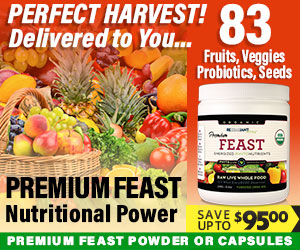1. Stability and Formulation for Optimal Effectiveness
The Importance of Probiotic Stability
One of the key factors influencing the effectiveness of immune support probiotics in 2025 is their stability during storage and passage through the gastrointestinal tract. When probiotics are unstable, they may lose viability before reaching your gut, rendering them less effective. Advances in formulation technology now focus on creating strains and delivery matrices that withstand heat, moisture, and stomach acid.
For example, buffered or enteric-coated capsules have become standard to protect probiotic bacteria until they reach the intestines. In 2025, companies are investing more in microencapsulation techniques that trap probiotics in protective shells, improving shelf life and ensuring live cultures arrive intact.
From personal experience, choosing probiotics from reputable brands with proper storage instructions makes a noticeable difference in outcomes. Always look for probiotics labeled with stability testing results and expiration dates to ensure maximum potency.
Innovations in Delivery Systems
Delivery systems are evolving rapidly. Beyond capsules, probiotic formulations now include powders, gummies, and even functional foods infused with live bacteria. These formats provide versatility for different lifestyles and preferences, which is especially important for immune support probiotics in 2025.
Probiotic-enriched beverages, for instance, are popular because they combine hydration with immune-boosting benefits. Furthermore, research shows that certain delivery methods can enhance probiotic survival rates significantly, making your supplement investment more effective.
Practical advice: When selecting immune support probiotics, consider the formulation’s stability and choose delivery systems proven to deliver viable strains effectively.
2. Top-quality Strains for Immune Support
Key Strains with Proven Immune Benefits
Choosing the right probiotic strains is critical when aiming for immune support. Strains such as Lactobacillus rhamnosus GG, Bifidobacterium longum, and Lactobacillus plantarum are backed by extensive research for their immune-enhancing properties. In 2025, the focus is on strains that modulate immune responses without overstimulating or suppressing them.
For example, Lactobacillus rhamnosus GG has been shown to reduce respiratory infections by strengthening mucosal immunity. Meanwhile, Bifidobacterium longum supports gut barrier integrity, which is essential for a balanced immune system.
To maximize benefits, select probiotics that contain multiple strains with complementary immune functions. This synergistic approach can provide broader immune support, especially during flu season or periods of elevated stress.
Strain Validity and Quality Assurance
In 2025, the authenticity of probiotic strains is paramount. Reputable brands verify their strains through genetic sequencing and maintain strict quality controls. This ensures you receive live bacteria that match the strains tested in clinical studies.
Labels should specify the strain names, CFU counts (colony-forming units), and manufacturing date. Avoid products with generic strain descriptions or vague labeling, as they may not deliver effective immune support.
Expert tip: When exploring immune support probiotics, look for certifications and third-party testing results to confirm strain validity and potency.
3. Dosage, Potency, and Daily Intake
Understanding CFU and Effective Doses
The effectiveness of immune support probiotics depends heavily on the dose. In 2025, evidence suggests that a daily dose of at least 10 billion CFU (colony-forming units) is optimal for immunity benefits, though some formulations go higher for targeted effects. Ensuring the product guarantees viable bacteria at the expiration date is critical.
Higher doses may be necessary in certain cases, such as during illness or periods of high stress. It is also important to introduce probiotics gradually to allow your gut microbiome to adapt comfortably.
Real-world advice: Start with a dose recommended by the manufacturer, then assess your body’s response before increasing if needed. Consistency is key for long-term immune health.
Timing and Frequency of Intake
Most effective probiotic regimens recommend taking probiotics on an empty stomach or before meals to maximize bacterial survival. Taking your immune support probiotics at the same time each day helps develop a routine and ensures steady colonization.
Additionally, some products are formulated for extended-release or sustained delivery, providing ongoing support throughout the day. Pay attention to storage instructions as well, since heat and moisture can diminish potency.
Practical tip: Pair probiotics with prebiotics like inulin or fiber-rich foods to enhance survival and colonization, further supporting immune health.
4. Sustainability and Source Transparency
Ethical Sourcing of Bacterial Strains
Consumers in 2025 are increasingly concerned about sustainability and ethical sourcing. When selecting immune support probiotics, look for products from companies committed to responsible harvesting and transparent supply chains. Sourcing strains from sustainable farms or labs reduces environmental impact and ensures product integrity.
Many brands now publish detailed sourcing information on their websites. They also undergo third-party certifications to verify quality standards and environmental commitments.
Practical advice: Supporting brands that prioritize eco-friendly practices helps promote sustainability while ensuring you’re getting high-quality probiotic strains.
Eco-friendly Packaging and Production
Reducing plastic waste is a major trend this year. In 2025, eco-conscious brands are offering biodegradable packaging, reusable containers, and minimal waste production. Such practices do not compromise probiotic quality but demonstrate a company’s commitment to sustainability.
Additionally, some brands offset their carbon footprint or support environmental initiatives. Opting for these products aligns your immune health goals with broader ecological responsibility.
Choosing sustainable, transparent probiotic products not only benefits your immune system but also contributes to protecting the planet.
5. Advanced Delivery Systems for Better Absorption
Innovations in Microencapsulation
Microencapsulation technology encapsulates probiotic strains in protective coatings, shielding them from stomach acid and digestive enzymes. In 2025, this method has become a cornerstone for delivering effective immune support probiotics. It ensures higher survival rates and better colonization in the gut.
This technology allows for targeted release in the intestines, increasing probiotic efficacy and immune response. Some formulations even respond to pH levels, releasing bacteria optimally for immune support during different times of the day.
My tip: When choosing a probiotic supplement, consider those with validated microencapsulation technology for maximum benefits.
Synbiotic Pairings for Enhanced Support
Combination products that include prebiotics alongside probioticsâcalled synbioticsâare gaining popularity. They support the growth and activity of beneficial bacteria, amplifying immune benefits. In 2025, formulations with ingredients like inulin, fructooligosaccharides (FOS), or galacto-oligosaccharides (GOS) are common.
Taking these together creates a thriving environment for the probiotic strains, boosting their ability to modulate immune responses effectively.
Huge Discount on the Best Certified Organic Nutrient Dense Supplement!
Actionable tip: Look for probiotic products that specify synergistic prebiotics for optimal immune support benefits.
6. Personalized Probiotic Formulations
Tailoring Supplements to Individual Microbiomes
In 2025, personalized medicine extends into gut health. Companies now offer microbiome testing that helps customize probiotic blends tailored to your unique gut bacteria profile. Personalized immune support probiotics can address specific deficiencies or imbalances, leading to more effective immune modulation.
This approach helps optimize immune responses by supporting the strains that are most beneficial for your current health status. For instance, someone with recurrent respiratory infections may benefit from specific Lactobacillus strains that boost mucosal immunity.
Practical advice: If you’re serious about immune resilience, consider consulting a specialist for microbiome testing and tailored probiotic recommendations.
Benefits of Custom Formulations
Custom probiotics tend to have higher compliance rates because they are designed to suit personal health goals and preferences. They also reduce waste and improve efficacy since they target your specific gut environment.
As the science advances, expect more affordable and accessible options for personalized immune support probiotics in 2025.
7. Innovative Ingredient Blends for Immune Boost
Adding Botanicals and Nutrients
2025 sees the integration of botanicals like elderberry, echinacea, and adaptogenic herbs into probiotic formulations. These ingredients synergize with probiotic bacteria to enhance immune response and resilience against pathogens.
Furthermore, micronutrients such as vitamin C, zinc, and vitamin D are increasingly being paired with probiotics for a comprehensive immune support blend. These nutrients help modulate immune pathways, making the probiotic formulations more potent.
Expert tip: When selecting immune support probiotics, choose products that combine beneficial bacteria with immune-boosting botanicals or nutrients for a holistic approach.
Functional Food Innovation
Probiotics are now incorporated into functional foods, including yogurts, smoothies, and snack bars, with added immune-boosting ingredient blends. These deliver probiotics alongside other healthful compounds, making daily immune support easy and tasty.
This trend encourages consistency and practicality, especially for busy individuals seeking immune resilience in 2025.
8. Scientific and Clinical Evidence
Research Supporting Immune Benefits
The landscape of immune support probiotics in 2025 is heavily driven by scientific research. Numerous clinical trials have demonstrated that specific probiotic strains can reduce the duration and severity of respiratory and gastrointestinal infections.
For example, a 2024 study published in the Journal of Gut Microbiology showed that a probiotic containing Lactobacillus plantarum strain XYZ reduced cold episodes by 30% in adults during flu season. Such evidence underpins the selection of effective probiotics for immune support in 2025.
My recommendation: Always check for clinical backing when choosing products. Brands with peer-reviewed studies backing their formulations tend to provide reliable immune support probiotics.
How to Interpret Scientific Claims
Not all claims are equal. Look for the size of studies, strain specifics, and whether the research was conducted on populations similar to yours. Transparency in reporting results reflects credibility.
Understanding the science behind your immune support probiotics enhances your confidence and ensures youâre making informed choices that truly benefit your immune health.
9. Probiotics in Beverages and Food Products
Convenience and Accessibility
In 2025, probiotic-infused beverages like functional waters, teas, and smoothies are mainstream. They combine convenience with immune support, making daily intake effortless. These products often contain potent strains and prebiotics for added effectiveness.
Similarly, probiotic-rich foods like kefir, fermented veggies, and yogurt are embraced for their natural immune-boosting properties. Incorporating these into your diet supports gut and immune health simultaneously.
Advice: Read labels carefully to ensure the products contain live strains and sufficient CFU counts for immune support potential.
Consumer Trends Toward Functionality
The trend toward functional foods with immune-enhancing ingredients continues to grow. Functional snacks, salad dressings, and even snack bars infused with probiotics are becoming common, making immune support a seamless part of daily eating habits.
This approach aligns with busy lifestyles, helping you maintain strong immune defenses without extra effort in supplement routines.
10. Trends and Predictions for 2025
The Rise of Next-Gen Probiotics
Looking ahead to 2025, innovation in immune support probiotics includes genetically engineered strains and bioengineered bacteria optimized for immune modulation. Although still emerging, these next-generation probiotics aim to deliver targeted immune benefits more effectively than ever before.
Companies are also exploring the use of synbiotics with customized prebiotic ingredients to enhance probiotic colonization and immune response.
Practical tip: Stay informed about new trends and consult health professionals before trying experimental probiotic formulations.
Personalized and Holistic Approaches
The future of immune support probiotics is personalized and holistic. Combining microbiome analysis, dietary adjustments, and targeted probiotic supplementation will maximize immune resilience in 2025.
Integrative approaches that consider lifestyle, stress management, and nutrition alongside probiotic use are predicted to become standard practice.
To stay ahead, focus on brands and products that incorporate scientific innovations and personalized strategies for immune health.
Conclusion
In summary, selecting the right immune support probiotics in 2025 involves understanding formulation stability, high-quality strains, effective dosages, ethical sourcing, advanced delivery systems, and scientific backing. These factors combine to enhance your immune resilience through innovative, personalized, and accessible probiotic options. As the science and market evolve, making informed choices about immune support probiotics will be crucial for maintaining your health in 2025 and beyond.
Remember, incorporating top-tier immune support probiotics into your daily routine can significantly bolster your immune defenses, helping you stay healthy and active all year round.





